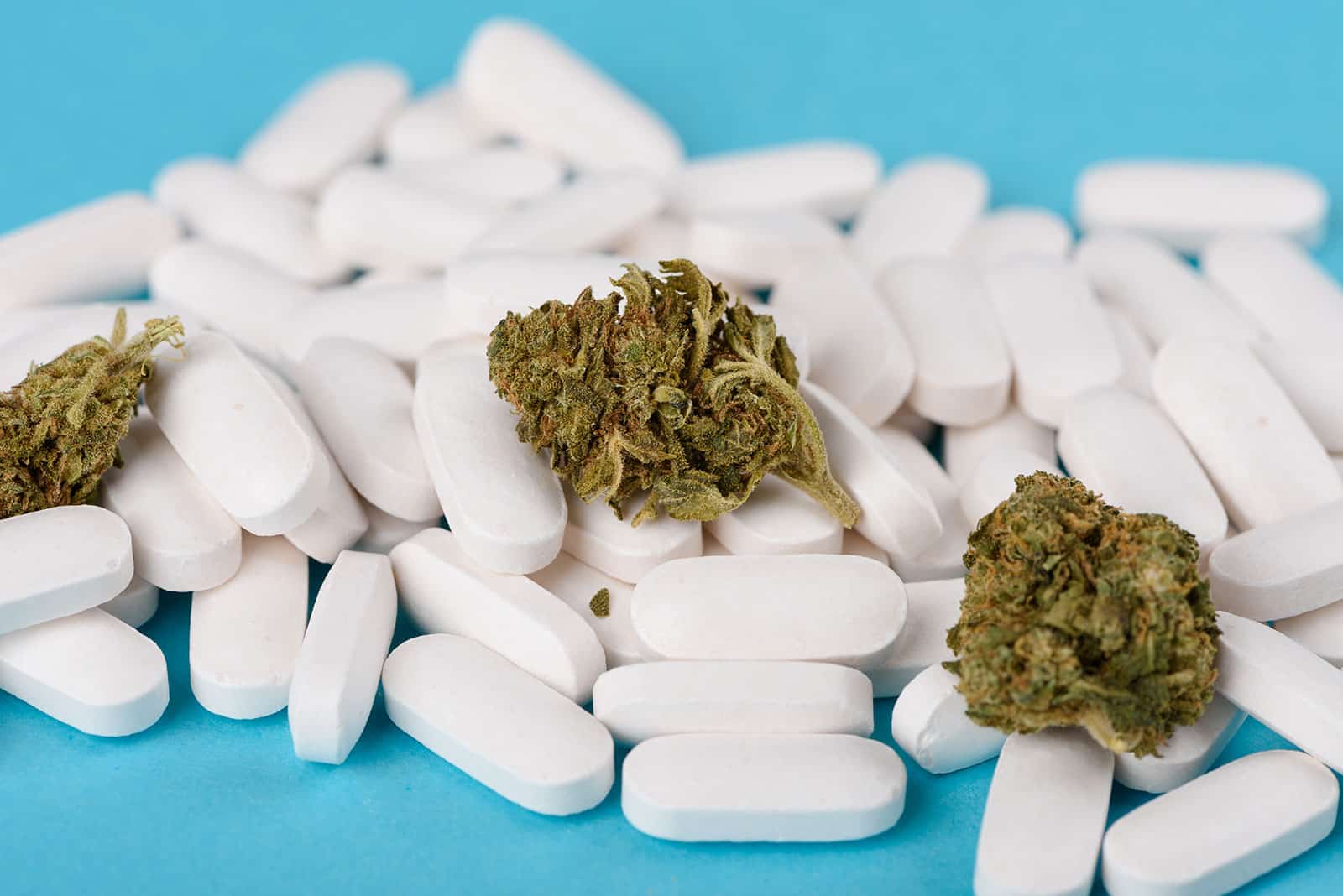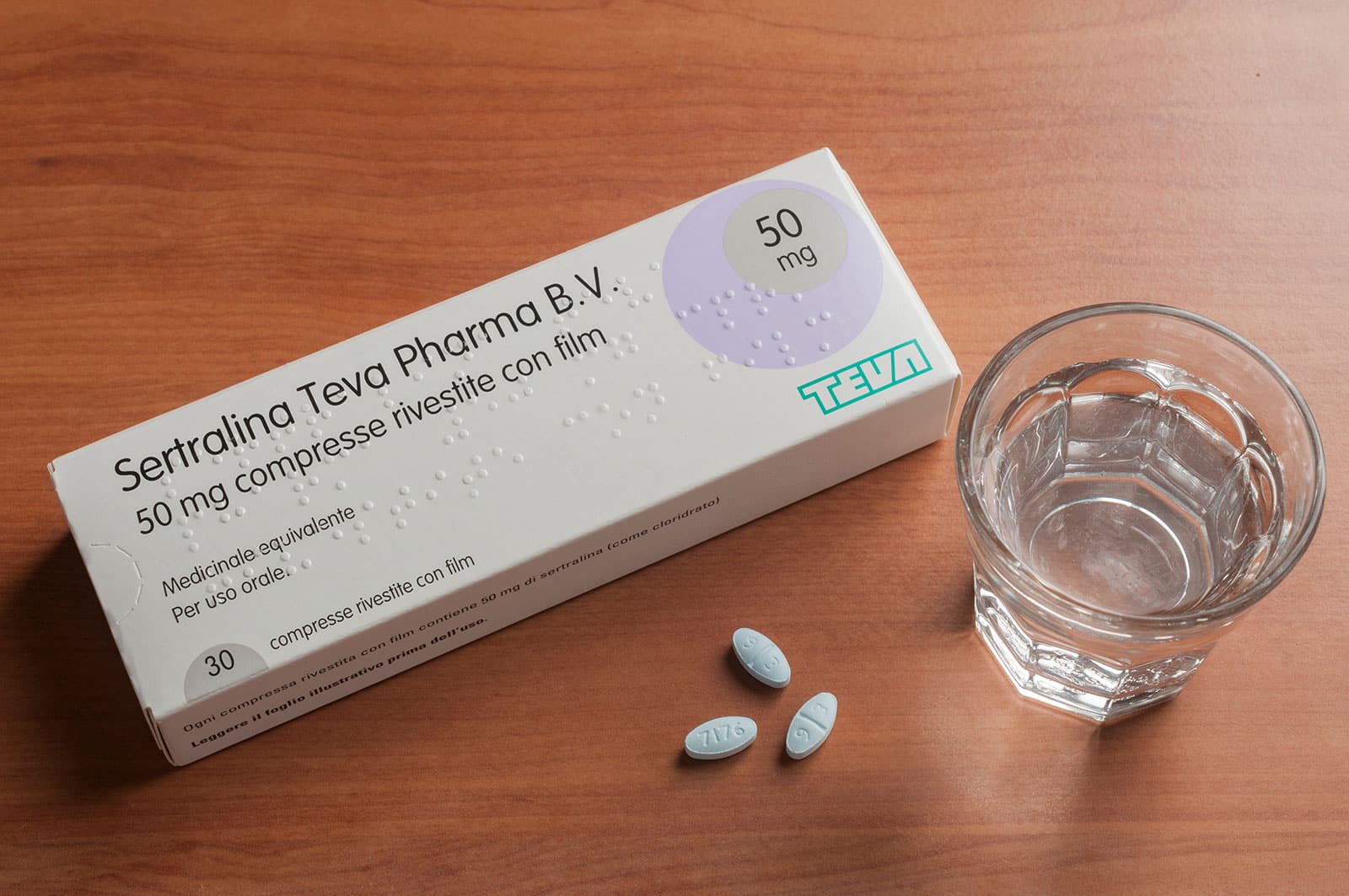With depression rates being at an all-time high, more people are resorting to antidepressants to improve their symptoms. Luckily, there are numerous available drugs on the market, including Lexapro, Doxepin, and Zoloft.
Zoloft is a particularly efficient option. However, if you smoke weed on a regular basis, you might want to look for another option. Mixing Zoloft and weed together can prompt serious risks.
If you want to stay informed, this post covers the influence of both drugs, how they interact with each other, and how to avoid potential side effects.
What Is Zoloft?
Zoloft is the brand name for sertraline, a selective serotonin reuptake inhibitor (SSRI) used to treat a variety of mental health issues. These include depression, social anxiety, panic disorder, and obsessive-compulsive disorder (OCD).
Zoloft prevents your brain from reabsorbing the serotonin it produces. As a mood enhancer, increased serotonin levels can help improve the symptoms of these disorders, prompting patients to feel better.
That said, this drug doesn’t take effect immediately. Patients usually feel the difference after a few weeks. So, take the pill as often as your doctor recommends, and you’ll eventually see the results.
Zoloft is generally a safe medication. It helps you feel more relaxed and regulates everyday functions, like sleeping and eating. That doesn’t mean it doesn’t come without risks, though.
Potential side effects include:
- Insomnia
- Fatigue
- Drowsiness
- Agitation
- Nausea
- Insomnia
In 2018, the FDA instructed all drug manufacturers to put a warning on all antidepressant containers, stating that they can prompt suicidal thoughts.
A 2010 study shows that children and adolescents had more peculiar responses to antidepressants and were more prone to these thoughts than adults.
What Is Weed Used For?
Despite being associated with recreational usage, weed is often used to treat anxiety, nausea, seizures, and post-traumatic stress disorder (PTSD). The main influential component in weed is tetrahydrocannabinol (THC), which stimulates a euphoric feeling when you consume it.
That euphoria can feed your creativity and help you fall asleep. However, THC can also activate the endocannabinoid system in your brain, intensifying how it regulates pain release, mood, memory, etc.
Like Zoloft, smoking or consuming weed doesn’t come without risks. Here are the most common side effects of marijuana (they won’t affect everyone in the same way):
- Dizziness
- Hunger
- Paranoia
- Memory issues
- Drowsiness
- Euphoria
- Distortion
- Tachycardia
The intensity of these side effects depends on the type of weed and how much of it you’ve smoked.
Important note: Severe side effects require immediate medical attention. So, don’t hesitate to go to the hospital if you notice any disturbances in your body after smoking weed.

Why Do People Consume Weed and Zoloft Together?
Mixing two substances is always a dangerous endeavor. So, why would anyone do it? There are plenty of reasons, although none of them are valid.
Avoiding Adverse Effects
Most patients consuming weed and Zoloft simultaneously usually do it to avoid the medication’s adverse side effects. As previously established, Zoloft can cause agitation, insomnia, and nausea.
Those who take it regularly worry about these symptoms and want to avoid them. So, they resort to smoking weed with it, hoping its euphoric effects would mask these symptoms.
That’s why many marijuana users don’t tell their doctors about their cannabis use when they’re prescribed Zoloft. Unfortunately, that logic is flawed, as combining these two substances together can prompt dangerous side effects.
Anxiety Treatment
As two substances that are commonly used to treat anxiety disorders, some people mix weed and Zoloft to improve their symptoms quickly. Those people usually don’t know that combination could potentially make them worse.
What Happens When You Mix Zoloft and Weed?
Unfortunately, no thorough studies have covered the way Zoloft and weed interact with each other. However, throughout the years, healthcare professionals have noticed the potential risks of mixing these two on their patients. Here are the most common ones:
Serotonin Toxicity
When you take antidepressants, your liver dedicates many of its enzymes to break them down. However, weed can slow down these enzymes’ pace or block them from breaking down these drugs altogether.
That increases the level of antidepressants accumulating in your blood/body. Not only does this cause an adverse reaction, but it also prompts serotonin toxicity (serotonin syndrome).
The symptoms of serotonin toxicity depend on the amount of antidepressants building up in your body. Mild symptoms include:
- Nausea
- Vomiting
- Diarrhea
- Confusion
- Headache
- Confusion
- High or low blood pressure
- Sweating
- Shivering
Life-threatening symptoms include:
- Passing out
- High fever
- Seizures
- Uneven heartbeat
Most Serotonin toxicity symptoms appear within 1-6 hours. If you experience any of the severe side effects, you should go to the hospital immediately. They should last around 24-72 hours if they’re treated quickly.
Hypoxia
Both Zoloft and weed are sedatives. Taking them simultaneously would put you in an intense euphoric state. While that sounds appealing, it can slow down your central nervous system (CNS).
That would make your depression worse, causing your heart rate to slow down and prompting hypoxia. That’s a condition in which your cells or body tissues stop receiving adequate oxygen. So, you won’t be able to breathe or think properly.
Hypoxia’s symptoms depend on what part of your body is affected. Here are the common ones most people experience:
- Rapid breathing
- Shortness of breath
- Confusion
- Restlessness
- Anxiety
- Headache
- Rapid heart rate
If your condition is more extreme, though, you might deal with a few more symptoms. These include:
- Bluish or purple skin
- Extreme restlessness
- Bradycardia (slow heart rate)
- Coma
In some cases, prolonged hypoxia can prompt brain damage, which might cause your eventual death.
Unwanted Therapeutic Effects
Most marijuana users don’t know that smoking it regularly can cause depression. So, when you smoke it while taking Zoloft, a medication that treats depression, the two can cancel each other out.
Not only will that perpetuate the symptoms of depression, but it can also prompt other risks. You see, if your symptoms don’t improve with medication, your doctor, not knowing you smoke weed, might suggest increasing the dosage.
In this scenario, you don’t need an increase in dosage. The problem is that the weed is hindering the medication from taking effect. So, increasing the dosage will do more harm than good.
Additionally, since weed cancels Zoloft’s effect, some patients might think it’s not working and stop taking it altogether. That will only cause their symptoms to get worse.
Why Is Mixing Zoloft and Weed a Prevalent Problem Today?
Yes, mixing Zoloft and weed has become a major concern today than at any other point in history. That’s because weed used to be illegal, and acquiring it was a challenging task.
So, health professionals didn’t have to worry that much about their patients potentially mixing the two substances together. However, as of March of 2024, 24 American states have legalized marijuana, whether it’s for medicinal or recreational purposes.
That’s not the only reason, though. Since the start of 2020, doctors have been prescribing more Zoloft and other antidepressants to help people cope with the pressure of Covid-19.
The increased availability of both substances has made it easier for patients to mix them together. As a result, the health risks associated with that combination became more prevalent.
When to Smoke Weed After Taking Zoloft?
The safest way to smoke weed with Zoloft is to wait for the medication to clear out of your system. That way, you’ll ensure the two substances won’t interact, and you won’t risk dealing with severe side effects.
Unfortunately, identifying when Zoloft leaves your body is a bit complex. Generally, Zoloft’s half-life is 24-35 hours. That means it takes that much time for half the drug to get out of your system.
Here’s the thing: That doesn’t mean the other half will clear out in the following 24-35 hours. You see, Zoloft contains desmethylsertraline, which has a half-life of 66 hours.
So, it’ll still leave traces in your blood for a few days. On average, Zoloft should get out of your system completely within 5-9 days. That’s when you can smoke your weed.
What Does Mixing Zoloft and Weed Indicate?
Now you understand the physical and mental health risks of combining both substances. So do a lot of people. Unfortunately, that doesn’t stop them from doing it, which indicates a weed addiction issue.
If you or your loved ones have exhibited similar behavior, don’t hesitate to contact a healthcare provider and ask for medical advice.
How to Avoid Mixing Weed and Zoloft?
The best way to avoid mixing weed and Zoloft depends on the reasons you’re mixing them in the first place.
If you smoke weed to alleviate Zoloft’s serious side effects, you can ask your doctor for other ways to relieve them. They might recommend a diet change, exercising, or adjusting your sleep pattern.
If you’re mixing both substances to treat your anxiety symptoms quickly, you can simply stop that and follow the treatment your psychologist recommends.
However, if you smoke weed with Zoloft because you can’t wait for the medication to get out of your system, you might be facing a weed addiction issue. In this case, enrolling in an addiction treatment program would be the safest option.
Final Thoughts
In theory, Zoloft and weed seem like a perfect combination that offers numerous benefits. In reality, though, it can prompt dangerous side effects. In rare cases, it can even be fatal.
That’s why you should always tell your doctor about your marijuana use if they prescribe you Zoloft.


